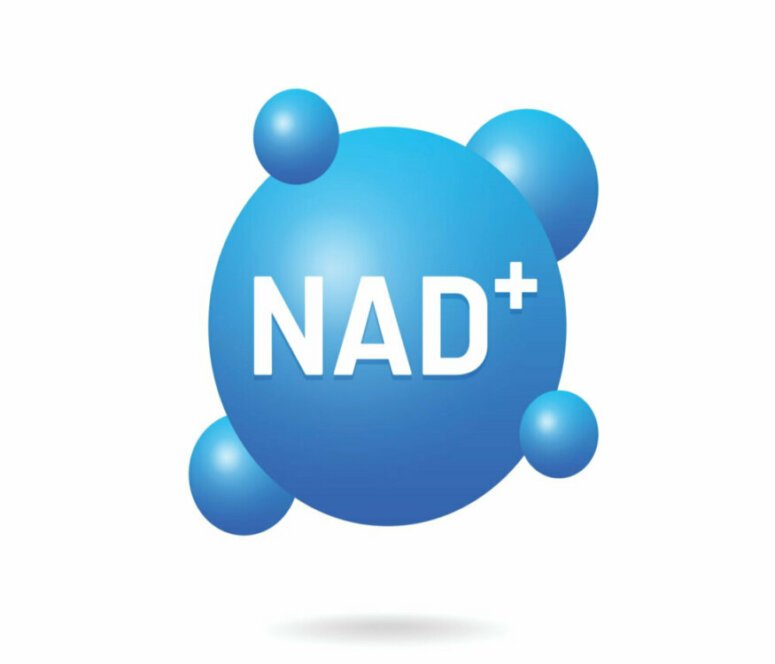The Many Benefits of NAD & What Does the Research Tells Us
In this day and age, it seems like everyone is looking for the latest and greatest cure-all remedy. So what is NAD+ and why is it gaining so much popularity? NAD+ stands for nicotinamide adenine dinucleotide, and it’s a molecule that plays a crucial role in energy production and metabolism. Studies have shown that elevating levels of NAD+ can have profound health benefits, including improved mitochondrial function, reduced inflammation, and better overall health. Here we’ll take a closer look at what NAD+ is, how it works, and some of the ways you can boost your levels of this important molecule.
What is NAD+?
NAD+ is a critical coenzyme found in every cell in the human body. NAD+ levels decline with age, and NAD+ has been shown to play a role in cellular aging. NAD+ is involved in hundreds of metabolic processes, including helping turn nutrients into energy and working as a helper molecule for proteins that regulate other cellular functions. NAD+ supplementation has been shown to improve cognitive function, increase lifespan, and protect against age-related diseases. NAD+ is an important molecule for maintaining health and preventing age-related diseases.
Benefits of NAD+
NAD+ has many benefits for overall health, including:
– Improving cognitive function
– Assisting in weight management
– Boosting energy levels
– Aiding in muscle development and recovery
– Supporting pain management
– Improving mood
NAD+ levels decline with age, and NAD+ has been shown to play a role in cellular aging. NAD+ is involved in hundreds of metabolic processes, including helping turn nutrients into energy and working as a helper molecule for proteins that regulate other cellular functions. NAD+ supplementation has been shown to improve cognitive function, increase lifespan, and protect against age-related diseases. NAD+ is an important molecule for maintaining health and preventing age-related diseases.
History and Research Discovery of NAD+
NAD+ was first identified Sir Arthur Harden and William John Young in 1906 when the two aimed to better understand fermentation — in which yeast metabolizes sugar and creates alcohol and CO2. It took nearly 20 years for more NAD+ recognition when Harden shared the 1929 Nobel Prize in Chemistry with Hans von Euler-Chelpin for their work on fermentation. Euler-Chelpin identified that the structure of NAD+ is made up of two nucleotides, the building blocks for nucleic acids, which make up DNA. The finding that fermentation, a metabolic process, relied on NAD+ opened up a whole new area of research into metabolism and cellular function.
Since its discovery, NAD+ has been shown to play a role in a variety of cellular processes, including energy metabolism, DNA repair, and cell signaling. NAD+ levels decline with age, and NAD+ supplementation has been shown to improve cognitive function, increase lifespan, and protect against age-related diseases. NAD+ is an important molecule for maintaining health and preventing age-related diseases.
NAD+ May Help Addicts in Recovery
According to an old FDA report published in mid-2019, NAD+ therapy alongside specific amino acids found the following addictions to be almost fully resolved: opioids, benzos, and alcohol. NAD+ (diphosphopyridine nucleotide) resolved the cravings and withdrawal symptoms of individuals addicted. This is promising news for those struggling with addiction, as NAD+ therapy may provide a path to recovery.


